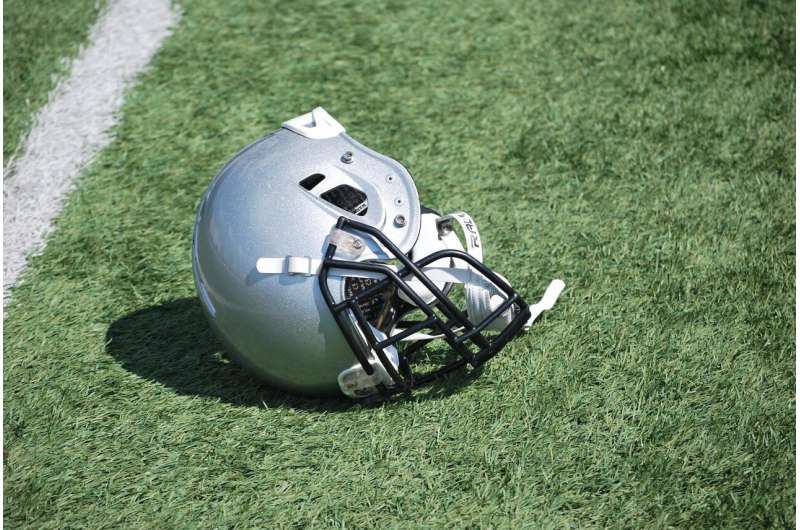Equitable care path reduces disparity in sport-related concussions

While previous work indicates Black patients of sports-related concussions suffer worse outcomes and receive lesser-quality care, a new study involving The University of Alabama shows racial disparity is greatly reduced with equitable resources and established care paths.
Athletic trainers were also shown to be integral to the care pathway and may help to reduce disparities in treatment of sport-related concussions, or SRC, according to the study "Health Care Navigation of Black and White Adolescents After Sport-Related Concussion: A Path Towards Achieving Health Equity." The study appears in the April issue of the Journal of Athletic Training, the scientific publication of the National Athletic Trainers' Association.
"We demonstrated that within an established SRC referral network and multidisciplinary clinic, there were no observed racial disparities in how athletes were initially managed or ultimately presented to the SRC clinic, despite racial differences in school type and insurance coverage," said Dr. Jessica Wallace, first author of the study and UA assistant professor in the department of health science and the athletic training program. "The (athletic trainer) remains a cornerstone of that care and can be a resource to help athletes and families navigate medical spaces, though previous researchers have demonstrated disparities in access to (athletic trainers)."
"Ensuring equal access of care for sports-related injuries and illnesses is certainly an integral part of our best practices," said Dr. Kathy Dieringer, NATA President. "This study provides a clear roadmap to equitable care and demonstrates that a multi-disciplinary network including athletic trainers and Emergency Department physicians can expedite care and recovery."
For the study, 582 middle and high school athletes, who were 83% white and 17% Black, participated in the retrospective cohort study. The adolescents were diagnosed with SRC and evaluated within three months at an SRC clinic between Nov. 1, 2017 and Oct. 1, 2020. The research was completed using data from the Vanderbilt Sports Concussion Center registry, a joint venture between the Vanderbilt University Sports Medicine and Vanderbilt University Medical Center Neurosurgery and Orthopedics departments.
Vanderbilt provides athletic training outreach services to 26 high schools in the Nashville, Tennessee area, and its concussion center providers also have established relationships with athletic trainers at high schools. Referrals flow into the concussion center from the emergency departments, athletic trainers and community providers.
Key findings include:
- Being within the sport-related concussion clinic referral network at the time of injury appears to mitigate the effect of socioeconomic differences, promote health equity and optimize continuity of care between Black and white athletes.
- Nearly two-thirds of Black and white athletes sought sport-related concussion care initially at the concussion clinic compared with the emergency department or other medical clinics.
- The presence of an athletic trainer is integral to the care pathway and may help to reduce disparities: 40% and 30% of Black and white athletes, respectively, were released to the athletic trainer to carry out return-to-play protocols as a final sequence of care.
"Our objective was to determine whether racial differences exist in the care pathway from injury to the sport-related concussion clinic within adolescent athletes," said lead author Dr. Aaron Yengo-Kahn of the Vanderbilt University School of Medicine. "Sport-related concussions are a public health concern, particularly among pediatric and adolescent populations, where one in five athletes has reported sustaining a concussion in their lifetime. Diversity among these athletes matters, seeking care for sport-related concussions are not consistent across demographics, can stem from health inequities, and can lead to further disparities."
In their study, the researchers note previous literature across medical fields and diagnoses indicates that even after accounting for factors such as insurance, severity of disease, income status and educational levels, Black patients suffered worse outcomes and receive lesser-quality care compared with their white counterparts. Based on prior studies suggesting the existence of racial differences pertaining to SRC, they hypothesized that differences would exist in initial management and access to care, but the study showed otherwise.
"SRC center assimilation and affiliation with school systems may be helpful in improving access and providing equitable care across diverse patient demographics," Wallace said. "Results from this study provide a health-equity–focused example of a health care network model that can reduce disparities and facilitate the continuity of care for patients with SRC."
More information: Jessica Wallace et al, Health Care Navigation of Black and White Adolescents After Sport-Related Concussion: A Path Toward Health Equity, Journal of Athletic Training (2021). DOI: 10.4085/1062-6050-0330.21




















